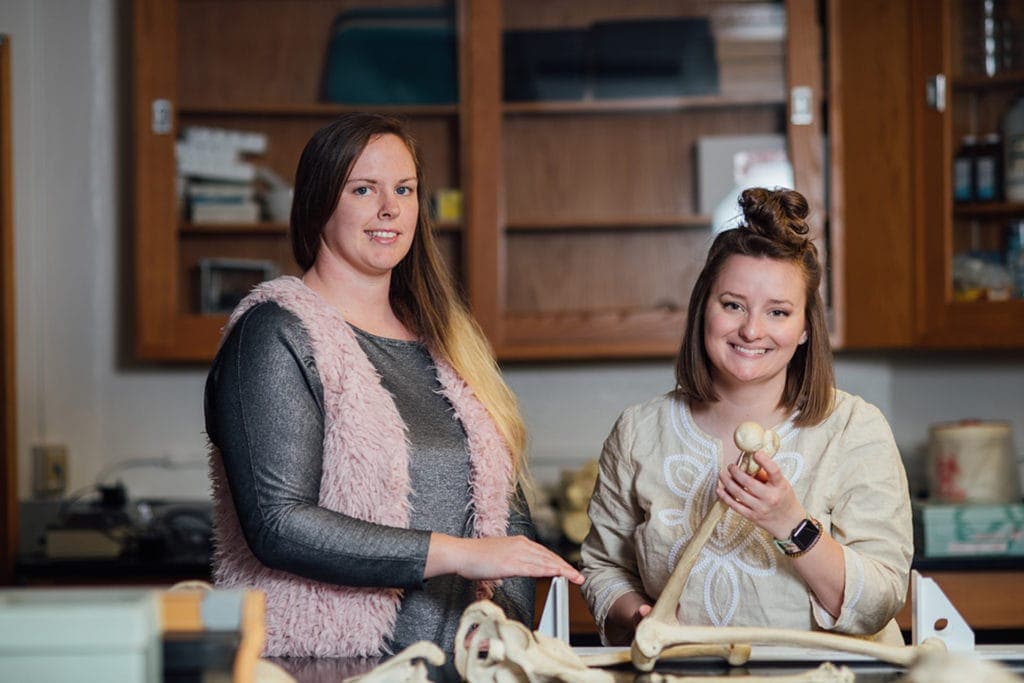Fairmont State University’s Kristy Henson, assistant professor of forensic science, and sophomore, Alexandra Knighten, have been chosen to participate in a bioarchaeology excavation with the Institute for Research and Learning of Archaeology and Bioarchaeology (IRLAB) in May.
Henson said this is an extremely competitive program available to students and faculty from all over the world and for this program they only accepted 20 people. They will be working in the Historic Harrison Township Cholera Cemetery just south of Columbus, Ohio for a month.
“The cemetery was in such bad shape due to vandals and headstones were broken, the individual who owns it didn’t know who was there,” she said. “So they brought in someone from the anthropology department from Ohio State and we’ll be excavating the remains to try to ID the individuals and then testing to see if they had cholera present when they died.”
This will be the first time Henson has ever participated in an archaeological dig for human remains and not just materials.
“This is a big deal because we’ll be learning proper techniques to excavate human skeletal remains,” she said. “This was before embalming and they were buried in wooden coffins, the coffins are probably going to be gone. We’ll be able to learn more about the population.”
Through skeletal morphology, Henson said they are able to learn more about the economic status of the people buried there. The different items they were buried with to the type of substances that made up the coffin are just a few ways to determine economic status.
“The important thing is the presence of cholera, it’s a water born pathogen that has killed thousands upon thousands of people and is still killing people in Africa,” she said. “We’re going to be testing for the presence of cholera in the soil and then getting the sequence of that pathogen to see if it’s different than the modern one.”
They’ll also be working to find the ancestry of the individuals to see if they match the old layout of the cemetery.
Knighten, forensic science major with a minor in chemistry, said she is honored to have been accepted into such a rare and competitive program.
“This internship with IRLAB will enhance my ability in identifying skeletal remains in a hands-on experience,” she said. “Working alongside such prestigious individuals is more than I could have ever asked for with an internship. I am eager to prove my abilities and represent Fairmont State with the highest standards as possible.”
More information about the excavation can be found at https://www.irlabnp.org/field-experience-in-bioarchaeology/.













